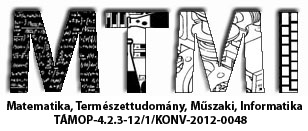The role of DAI/ZBP1 in the regulation of the inflammatory response of human monocyte-derived dendritic cells
The major function of tissue dendritic cells (DCs) is the continuous uptake of soluble and particulate antigens and the detection of metabolic changes and inflammation in their environment. Besides a wide array of pattern recognition receptors expressed in the DC membrane (Toll-like receptors: TLRs, C-type lectin receptors: CLRs) these cells are also equipped with intracellular sensor molecules such as intracellular membrane-bound TLRs (e.g.TLR3, TLR7/8 etc.) and cytosolic sensors that involve NOD-like receptors (NLRs) and RIG-I-like helicases (RLHs). Interestingly, certain members of all these PRR families are specialized for nucleotide recognition. DAI (ZBP1, DLM-1) is a recently identified cytoplasmic double-stranded DNA sensor, which is involved in the regulation of type I interferon responses. After activation, DAI triggers interferon-regulatory factor 3 (IRF3) phosphorylation through TANK-binding kinase 1 (TBK1), which then leads to the transcription of a single interferon gene i.e. IFNb1. It is known, that certain autoimmune diseases may be triggered or maintained by the detection of modified self-DNA motifs. In this context DAI may have a dual role: it detects virus-derived DNA but also could sense self-DNA structures. We measured the relative expression of DAI in monocytes and in cultured monocyte-derived DCs. We found that monocytes and immature DCs express DAI, the components of the downstream signalling pathway (i.e. TBK1, IRF3, IFNb1) both at the mRNA and protein levels. The expression of DAI can be increased by inflammatory signals such as interferon-gamma (IFNg), but not by interferon-beta (IFNb1). Moreover, phagocytosis of apoptotic neutrophil granulocytes by DCs strongly enhanced the mRNA expression of DAI, IRF3 and IFNb1. Interestingly, levels of secreted proinflammatory cytokines (IL-1beta, IL-6, TNFalpha) did not change as a result of apoptotic cell phagocytosis. These results suggest that DAI may play an important role in the control of IFNb1 expression in DCs but not in the regulation of pro-inflammatory cytokine responses to self-DNA. Analysis of the signalling pathway(s) mediated by DAI in monocyte-derived DCs needs further investigation.
Támogatók: Támogatók: Az NTP-TDK-14-0007 számú, A Debreceni Egyetem ÁOK TDK tevékenység népszerűsítése helyi konferencia keretében, az NTP-TDK-14-0006 számú, A Debreceni Egyetem Népegészségügyi Karán folyó Tudományos Diákköri kutatások támogatása, NTP-HHTDK-15-0011-es A Debreceni Egyetem ÁOK TDK tevékenység népszerűsítése 2016. évi helyi konferencia keretében, valamint a NTP-HHTDK-15-0057-es számú, A Debreceni Egyetem Népegészségügyi Karán folyó Tudományos Diákköri kutatások támogatása című pályázatokhoz kapcsolódóan az Emberi Erőforrás Támogatáskezelő, az Emberi Erőforrások Minisztériuma, az Oktatáskutató és Fejlesztő Intézet és a Nemzeti Tehetség Program



